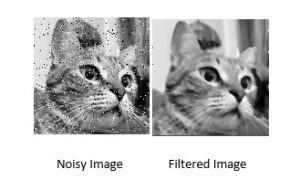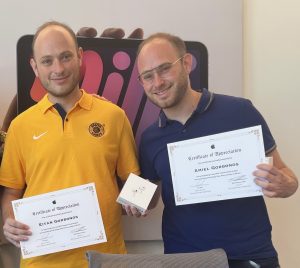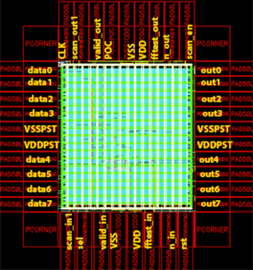Supported by Apple
Technion Students Develop Innovative Image Enhancement Chip
Twin brothers Amiel and Eitan Gorbonos have developed an innovative chip for image enhancement. The project, conducted at the Andrew and Erna Viterbi Faculty of Electrical and Computer Engineering and supported by Apple, was supervised by lab engineer Goel Samuel.
In recent years, Apple has funded student projects in the VLSI lab at the Faculty, aiming to provide students with the opportunity to experience the industry process from concept to design, and testing the physical chip after production.
Dalia Haim, a director in the silicon group at Apple Israel, explains that Apple’s involvement is intended to expose students to the vast potential in the hardware field and thus develop the next generation of chip engineers. Students participating in these projects receive personal guidance from Apple engineers, and upon completing the design phase, Apple funds the chip’s production in relevant factories. After production, the chips are returned to the lab, and students test them and their performance. This gives them experience working in a development team similar to the reality in the high-tech industry.

In the pictures, you can see the dramatic improvement in image quality – from left (raw image) to right (the image after noise filtering by the chip developed at the Technion)
The new chip developed by the students is designed to filter image noise. The students began with the general design (architecture) of the chip. The chip was manufactured according to the plan in a factory and returned to the Technion for testing. This was the first product in the VLSI lab produced using the TSMC65 process for manufacturing nanometric chips.




